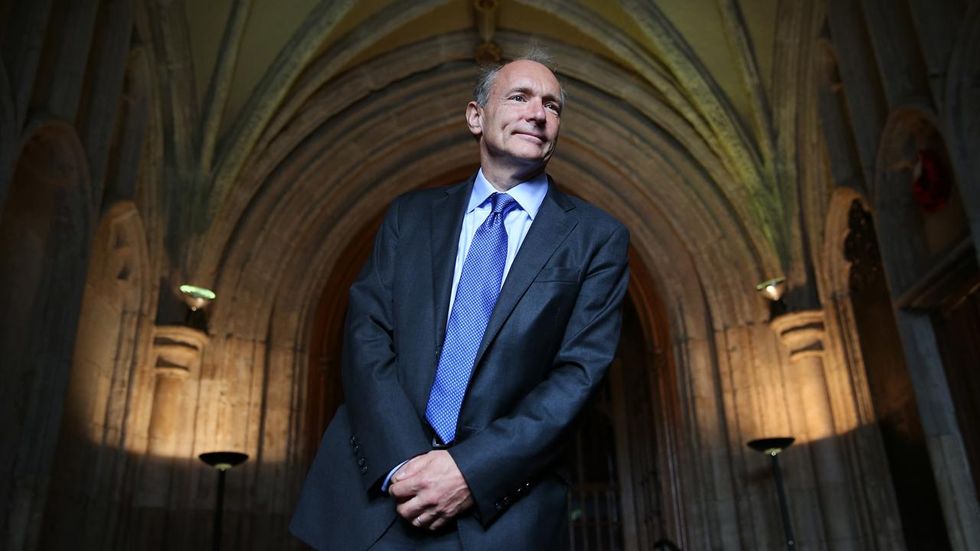Tim Berners-Lee, the man credited with inventing the World Wide Web, is about to launch a plan that could upend it.
It's called Inrupt, a startup that he has been "building, in stealth mode, for the past nine months,” Fast Company reported.
What is this?
It’s part of a bigger movement by developers around the world who want to decentralize the web and take it back from organizations that have profited from its centralization. That includes companies like Facebook, Google, and Amazon.
Berners-Lee and other internet activists have said they also envision a digital world where people can control their own data and the internet is "free and open," the report stated.
The internet refers to the networking structure that allows computers to communicate with each other around the world. The World Wide Web refers to the information-sharing system that allows the transmission of data over the internet. The HTTP protocol, for example, is one “language” used to transmit data.
Berners-Lee is taking a year-long sabbatical from Massachusetts Institute of Technology to make Inrupt a reality. A key motivation for the project was the revelation that Facebook allowed people's data to be co-opted by political groups, according to the report.
Inrupt will be "the first major commercial venture built off of Solid, a decentralized web platform he and others at MIT have spent years building," Fast Company explained.
“We have to do it now,” Berners-Lee told the media outlet. “It’s a historical moment.”
Berners-Lee showed Fast Company what it looks like:
On his screen, there is a simple-looking web page with tabs across the top: Tim’s to-do list, his calendar, chats, address book. He built this app, one of the first on Solid, for his personal use. It is simple, spare. In fact, it’s so plain that, at first glance, it’s hard to see its significance. But to Berners-Lee, this is where the revolution begins. The app, using Solid’s decentralized technology, allows Berners-Lee to access all of his data seamlessly–his calendar, his music library, videos, chat, research. It’s like a mashup of Google Drive, Microsoft Outlook, Slack, Spotify, and WhatsApp.
Berners-Lee said he believes Solid will appeal to developers, hackers, and internet activists around the world who do not want corporate and government interests controlling with the web.
Later this fall, Berners-Lee plans to seek more venture funding and to build his team.
“The man who gave the web away for free has never been motivated by money,” Fast Company reported. “Still, his plans could impact billion-dollar business models that profit off of control over data. It’s not likely that the big powers of the web will give up control without a fight.”
Does he expect opposition?
What about opposition from the so-called Internet giants?
“We are not talking to Facebook and Google about whether or not to introduce a complete change where all their business models are completely upended overnight. We are not asking their permission,” Berners-Lee told the publication.




